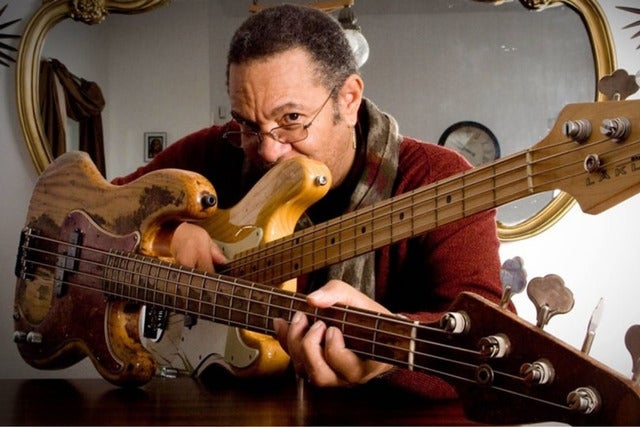George Porter Jr. is probably best known as the bassist for the legendary News Orleans funk band The Meters, but he continues to reverberate in music today.
It's not surprising that Porter has had such a profound influence on funk. Even at a young age, he was immersed in music. His father and mother were dedicated listeners and performers, from playing jazz legend Duke Ellington's records throughout their home to watching his mother sing in the church choir in New Orleans.
While his mother gifted him a classical guitar for Christmas, he was inspired to play the bass guitar as a young man by Benjamin "Poppi" Francis. Future bandmate Art Neville eventually approached Porter after one of his performances with Earl King. Neville came to him and asked if he wanted to join his band. By this point, Porter had already befriended future Meters bandmate Joe "Zigaboo" Modeliste and decided to agree to Neville's proposal.
From there, The Meters were born and universally adored throughout the '70s by their contemporaries. Though they didn't enjoy much mainstream success, the band is routinely hailed as legendary and one of funk's originators.
The Meters broke up in 1977, leaving Porter free to play with Joyride and numerous other New Orleans musicians throughout the 1980s. He was a sought-after bass player for studio recordings and performed with countless artists throughout his career.
Porter formed the band The Runnin' Pardners in 1990 and reunited with them on his 2021 release Crying for Hope.
The album blends funk, jazz and rock in a wide-ranging musical experience anchored by modern recording methods. The blues' soulfulness is central to the album, split into three sides just like vinyl records once were.
Every tune on the album was recorded remotely during quarantine. The result is twelve tracks, including a mix of new Runnin' Pardners songs and a variety of new compositions inspired by the country's collective social justice reckoning in the summer of 2020. The press release notes, Crying For Hope offers a "picture of the current state of funk -- and a testimony to its position in the wider social conversation -- from one of the most prolific and influential bassists of his generation."
Now in his 70s, Porter shows no signs of slowing down or resting on his laurels. He continues to build on the jam-band legacy that he helped create. He is quick to say he does not want to lean on his legacy, telling Tidal magazine, "I'm trying to become a prolific songwriter on my own. But in a way we know we can't escape where we come from."
That lives on in his live shows, something you won't want to miss.

